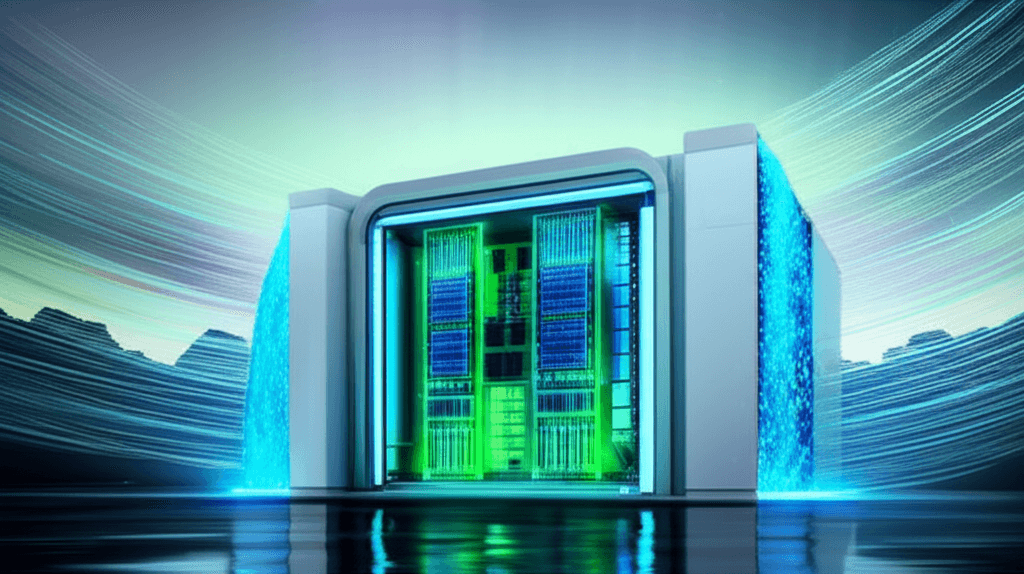OpenAI Launches Stargate Norway: Europe's First Green AI Supercomputer Hub
OpenAI’s Stargate Norway: A massive, green-powered AI supercomputing hub strengthening Europe’s digital future and sovereignty.
July 31, 2025

OpenAI has officially announced the launch of Stargate Norway, its first artificial intelligence data center in Europe, marking a significant step in the company's global expansion and a major boost for the European AI landscape. The facility, to be located in Narvik in Northern Norway, is a part of OpenAI's "OpenAI for Countries" program and represents one of the most ambitious AI infrastructure projects on the continent to date.[1][2] In a partnership with AI infrastructure provider Nscale and Norwegian industrial conglomerate Aker, the project aims to harness the region's abundant renewable energy to power the massive computational demands of advanced AI models.[3][2] This strategic move not only provides OpenAI with a crucial European foothold but also aligns with the growing demand for sovereign AI capabilities and sustainable computing solutions across the region.
The scale of Stargate Norway is substantial, positioning it as a key hub for AI development. The initial phase is planned to deliver 230 megawatts of power capacity, with ambitions to expand by an additional 290 MW.[2] A primary goal is to deploy 100,000 NVIDIA GPUs by the end of 2026, with intentions for significant scaling in the following years.[1][3] The project will be developed and constructed by Nscale and is expected to be owned by a 50/50 joint venture between Nscale and Aker.[1][3] OpenAI will act as the initial and primary user of the facility's capacity, with the option to scale its usage over time.[1] The selection of Narvik is strategic, leveraging the area's cool climate, mature industrial base, and, most importantly, its access to low-cost, abundant hydropower, which is crucial for powering the energy-intensive process of training and running large-scale AI models.[1][2] This initiative follows the launch of Stargate UAE earlier in the year, signaling OpenAI's accelerating global infrastructure strategy.[2]
A cornerstone of the Stargate Norway project is its deep commitment to sustainability and energy efficiency. The data center is designed to run entirely on renewable power, addressing one of the major criticisms leveled at the rapidly growing AI industry: its enormous energy consumption.[1][2] To maximize efficiency, the facility will incorporate advanced closed-loop, direct-to-chip liquid cooling technology.[2] This method is more effective than traditional air cooling for managing the heat generated by densely packed high-performance GPUs. Furthermore, the project plans to recycle the excess heat produced by the computer systems. This captured thermal energy will be made available to support local low-carbon enterprises, creating a symbiotic relationship with the regional economy and further enhancing the project's green credentials.[2] This focus on sustainable practices is becoming increasingly important as the demand for data center capacity is projected to grow exponentially in the coming years, driven largely by AI.[4][5] Norway's established leadership in renewable energy, with 98% of its power coming from renewable sources, makes it an ideal location for such a green computing initiative.[4]
The implications of Stargate Norway extend far beyond its physical infrastructure. For OpenAI, it provides a vital European base to serve a continent where millions of people and businesses already use its tools like ChatGPT.[1] In Norway alone, the number of weekly active ChatGPT users has quadrupled in the past year.[3] For Europe, the project addresses a critical need for large-scale compute capacity, which will help foster local innovation and ensure the benefits of the AI transformation are realized by developers, researchers, and startups across the continent.[1] Surplus capacity from the data center will be made available to public and private sector users throughout the UK, the Nordics, and Northern Europe, further accelerating the development of the region's AI ecosystem.[1] In line with its "OpenAI for Countries" program, the company will engage with the Norwegian government to explore collaborations aimed at boosting AI adoption and helping Norway achieve its sovereign AI goals.[1][2] This includes providing priority access to the new compute capacity for Norway's own AI startups and scientific researchers.[1] The project aligns with a broader trend of nations seeking to secure their own AI capabilities and data processing within their borders.[6]
Stargate Norway is a key component of a much larger, multi-phase global infrastructure plan by OpenAI, often discussed in partnership with Microsoft. While the Norway facility is the first of its kind in Europe, the "Stargate" name has been associated with a reported $100 billion proposal by Microsoft and OpenAI to build a series of supercomputers, primarily in the United States, culminating in a massive fifth-phase system projected for 2028.[7][8] This broader Stargate initiative is envisioned to provide the foundational compute power necessary to push toward Artificial General Intelligence (AGI), a level of AI that can perform a wide range of tasks at a human or superhuman level.[9] While OpenAI's partnership with Microsoft remains central, with OpenAI continuing to heavily use Microsoft's Azure cloud platform, the establishment of facilities like Stargate Norway indicates a strategy to diversify and expand its infrastructure footprint globally.[10][11][12] This allows OpenAI to build new capacity, tap into renewable energy sources, and work directly with governments and industrial partners worldwide.[10]
In conclusion, the launch of Stargate Norway represents a pivotal moment for OpenAI and the European technology sector. It is a concrete step toward building the massive, sustainable infrastructure required to power the next generation of artificial intelligence. By selecting Norway, with its renewable energy surplus, and partnering with local industrial and infrastructure experts, OpenAI is setting a precedent for how the immense energy needs of AI can be met responsibly.[4][13] The project not only provides a critical resource for European developers and researchers but also supports the strategic objective of digital and AI sovereignty on the continent.[2][14] As the first Stargate data center in Europe, the Narvik facility will be closely watched as a model for future AI infrastructure investments globally, balancing the relentless demand for computational power with the urgent need for environmental sustainability.
Sources
[1]
[6]
[7]
[9]
[10]
[11]
[12]
[13]
[14]